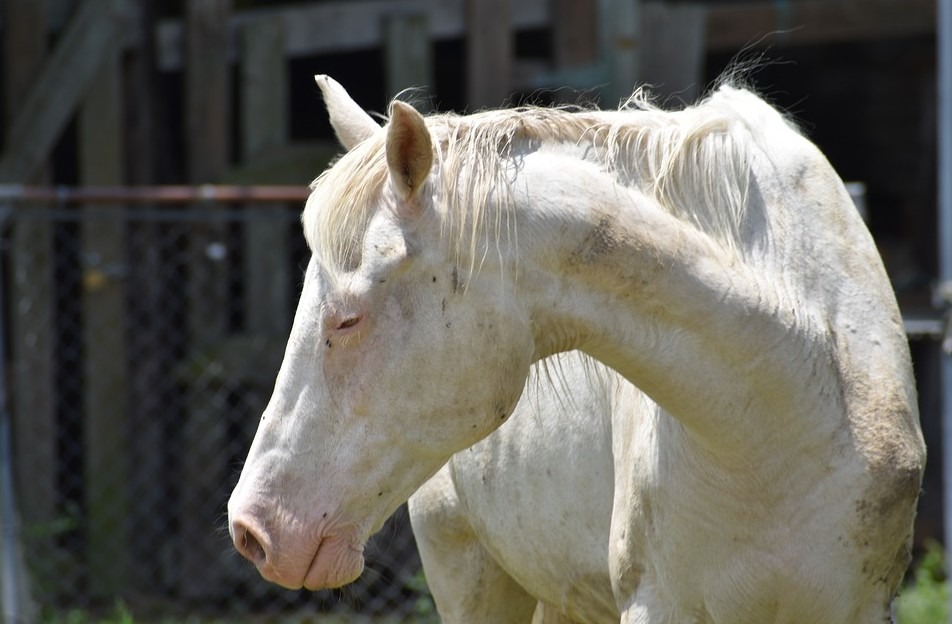How to Know if Your Horse is Sick

A horse suffering in silence is not the best sight to see, especially for its owners. Since horses cannot tell when they feel something wrong, it is the owners' responsibility to be sensitive to any signs of sickness or injuries.
Most of the horses' behaviors, conditions, and reactions associate with their physical well-being. Each horse is different from the other, so it essential to spend time with each of them and get to know how they usually behave. It is beneficial to pay attention to your horses while working and riding with them. It will help you instantly notice if there is something wrong going on with your horses.
Listed below are some indications that will help in knowing if your horse is sick.
- Changes in their body processes- Horses love to drink water and eat most of the time. It also means that they usually urinate, and pass dung several times a day. When you notice that your horse starts losing its appetite, has discolored urine, likes to drink excess water, is constipated, and experiences diarrhea, it might be a sign of digestive problems. Horses are prone to digestive health problems. So, it is very crucial to watch them closely and monitor their body processes.
- Issues in their eyes, ears, and nose- Horses are naturally curious, so their ears always tend to prick up or move back and forth. When they are asleep, their ears should be at rest on each side- if you notice that your horse is hiding in a dark corner with their head hanging low and ears pushed back, it means that they are sick and in pain. Monitor your horses if they have nasal discharges, teary or congested eyes. If they do, it might be a sign of infection or internal problems. Regularly clean the nose and eyes of the horses with clean water to avoid infections.
- Dry fur and skin- A supple horse with soft and glowing skin is a sign of a healthy horse. You might want to have a veterinarian check out your horse if it has dry and peeling skin and a rough and dull coat that's greasy or dry. These things might be symptoms of an illness. Remember to groom your horses regularly to maintain glowing skin and a healthy coat.
- Lameness in walking- A healthy horse shows no issues in walking and has its weight distributed evenly on its limbs. When taking care of your horse, you must also check its limbs. Early detection of minor issues on your horses will help prevent their lameness. Always clean their hooves and be very careful when brushing your horse's heels. Look out for loose horseshoes, stones, thorns, discharges, unpleasant smells, and unusual patches.
- Dental issues- The teeth of your horse wear out over time. It is crucial to check your horse's teeth regularly. If you see some signs of drooling, loss of appetite, mouth sores, and unpleasant breath, it might indicate that your horse suffers from a health problem. Other symptoms of dental issues include chewing only on one side, swollen jaws, and spilling chewed foods.
- Back problems- When you see bruising, soreness, or muscle tension in your horse, it might be good to have it check out. These may be signs of horse health problems. You will notice if your horse is experiencing back problems when it's bucking, gets aggressive when saddled, drops to one side, and has strained movements. Accidents like falling or slipping and saddles that do not fit properly may cause these back problems to horses.
- High fever- Your horse is sick when it has a high fever and inflamed and swollen skin around its legs and stomach. These things are symptoms of mud fever. It frequently happens, especially during the cold season. With the wet and mushy environment, bacteria may easily creep into the horse's skin. These bacteria cause wounds that eventually heal and form into scabs, covering the infection in the horse's body.
- Coughing- Immediately treating a coughing horse and putting it into quarantine is essential. It will help avoid serious problems and prevent the spread of the disease to other horses. Coughing in horses caused by colds is characterized by the release of watery mucus from the horse's nose. When it remains untreated, the horse's cough will become rapid with yellow discharge. Allergic reactions and bacteria may also be the cause of the coughing of your horse.
- Circular-shaped lesions- These circular-shaped lesions may be fungal infections like ringworms. Watch out for these lesions that cause hair loss on different parts of the horse, like the neck, head, back, and saddle areas. When your horse suffers from fungal infections, you must isolate it, demolish its bedding, and disinfect all the equipment.




